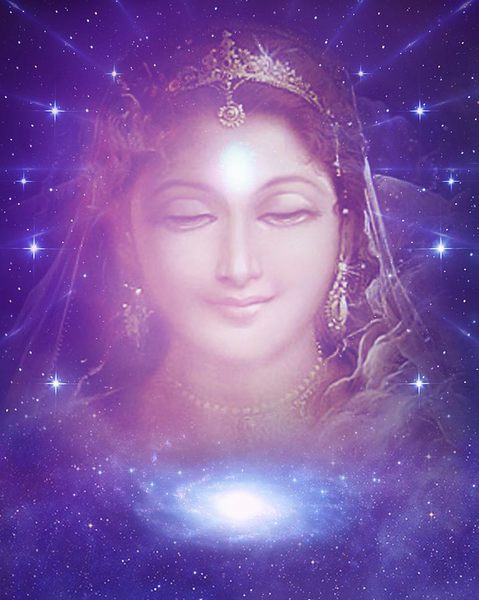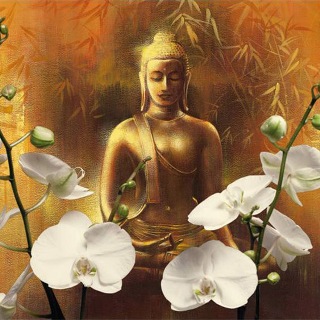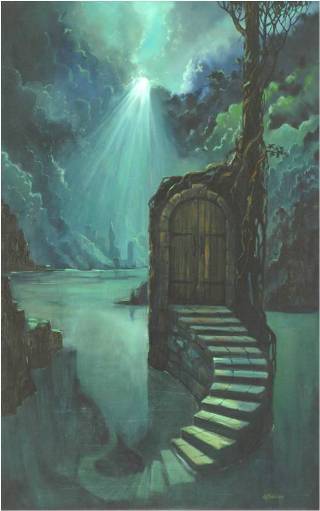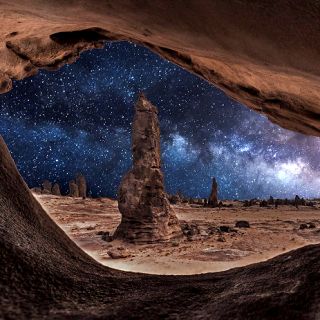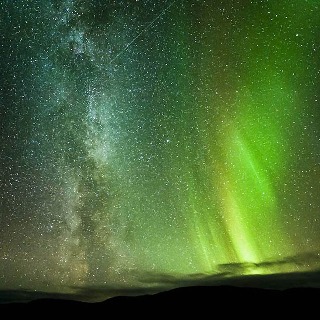Religion and Spirituality
Quotations on Spirituality Quotations on A Look at Modern Day Christianity Quotations on Religion |
“Religion is for people who are scared to go to hell. Spirituality is for people who have already been there.” Religion is a very difficult topic to address. It is a topic that elicits much emotion. Beliefs and opinions cover the full range from religion being the focal point and guidepost of one’s life to religion being the greatest evil that has been perpetrated on mankind. And, unfortunately, many of these beliefs and opinions have been formulated without having a full understanding of this subject. A child is born into a family that has strong religious views and is taught their parents’ views. Since their parents have been right on so many other topics growing up, naturally a child will tend to believe their parents when it comes to religion. That is why religious beliefs are largely geographical. And since orthodox religion promises great things after one dies, it is not so hard to accept. One of the key trends in today’s world is that the Internet provides an incredible amount of information on the world around us. As it relates to religion, it does two things;
As a result, many young adults grow up not knowing what to think. There are so many religions that on the surface appear to have different principles that it is hard to say which one is right. And there appears to be so much evil done in the world in the name of religion that is it easy to become cynical and dismiss the topic altogether. However, most humans have an intuitive sense that there is something more to this life than day to day existence and the pursuit of money, pleasures, power, etc. Where is one to turn? What is covered here is the word of those who have experienced the ultimate knowledge, who have, at least for a time, experienced oneness with Spirit. For those whose religious beliefs do not allow for such a possibility, you have probably long since left this website. You should be aware, however, that there are individuals from all religions who have made such a claim and, of course, most religions have been founded on the teachings of such a person. As well, those with strong religious beliefs who do not want to have those beliefs challenged in any way, it is probably best not to venture further into this section. Religion can be a source of great comfort, hope and helpful direction. As such, all religious practice that does not harm others should be respected. The intent herein is to offer those without religious beliefs, or those questioning their beliefs, access to the words of the mystics on this topic. It will be shown that all mainstream religions have both an orthodox as well as a mystical branch and that all mystics, whether associated with a particular religion or none at all, say the same thing. The mystical view is also the one that is consistent with the profound findings of modern science, covered in the section on The Enchanted Universe, that have uncovered a universe much different than the one known even a hundred years ago. This sub-section is divided into several parts; Spirituality – looks into the mystical path that leads to re-discovering one’s native state as a god, i.e. as a soul united with Spirit. The “inner” search for meaning is emphasized in this path as well as the unity of Spirit and man. A Look at Modern Day Christianity – briefly looks at how Christianity has evolved from the original teachings of Jesus to today. Why do Religious Organizations become Rigid and Dogmatic Over Time? – one view as to why this happens. Religion – looks into the mainstream religions which differ considerably amongst each other. Modern mainstream religions emphasize rites, rituals and ceremonies as their primary focus. Comparison of Religion and Spirituality – provides a brief overview of how these two paths compare. Is Religion Necessary? – looks at whether or not religion is necessary to achieve realization of the ultimate Reality; to re-discover our original status as gods; to attain enlightenment. Wrap Up - provides a few select quotations that summarize the above topics. ________________________________ Spirituality “Every major world religion has a mystical branch. Islam’s mystical branch is Sufism. Buddhism’s most mystical branch is Zen, in Judaism it is called Kabbalah, Hinduism and Gnosticism are by their nature, essentially mystical, and in Christianity it is simply called Christian Mysticism. Some of the more well-known mystics are: Jesus, Buddha, Muhammad, Lao-tzu, Krishna, Shankara, St. Francis of Assisi, Meister Eckhart, Paramahansa Yogananda, Rumi, Ramana Maharshi, Nisargadatta Maharaj, Joel S. Goldsmith, Mary Baker Eddy, Evelyn Underhill, Ralph Waldo Emerson, Amos Bronson Alcott, Emma Curtis Hopkins, Edgar Cayce, William Shakespeare, William Blake, and many, many others whom we would never suspect as being mystics.” ~ The Center for Living Truth "The viewpoint of the mystic - one who has had a glimpse into the nature of reality - is sometimes referred to as “the perennial philosophy,” since it is one that is seen to resurface again and again throughout history. It is a worldview that is common to mystics of every conceivable religious tradition. It has been called, in the words of the Vedas, the sanatana dharma, “the eternal religion,” as it is the foundation, which underlies all the various sectarian “religions” and all mystical philosophy.” ~ Swami Abhayananda “Six great religions have shaped the major civilizations that exist today: the three Abrahamic religions (Judaism, Christianity, and Islam) and the three Eastern religions (Hinduism, Buddhism, and Taoism/Confucianism). These religions seem to be quite at odds with each other when we look at their outer, or exoteric, forms. Not only do they have different rites, rituals, prayers and precepts, but in many cases their most fundamental doctrines about the nature of Reality appear to contradict each other ... If we dig more deeply, however, we find within each of these religious traditions an inner, or esoteric, stream of teachings given by their mystics - those men and women who claim to have had a direct Realization, or Gnosis, of the Ultimate Nature of Reality. Moreover, if we compare the testimonies of these mystics about the Nature of this Reality, we find that, despite vast separations in time, place, language, and culture, they are strikingly similar - so much so that many scholars have come to view their teachings as constituting a single perennial philosophy.” ~ Joel Morwood “It is here, in the direct records of the personal experiences of the great mystics, that the heart of the religious impulse is to be found, rather than in the official dogmas and intellectual interpretations of theologians.” ~ Amaury De Riencourt Wikipedia defines Spirituality as “a ‘search for the sacred’ ... or an encounter with one's own ‘inner dimension.’” Houtman and Aupers characterize modern spirituality as “a blend of humanistic psychology, mystical and esoteric traditions and eastern religions.” Building on these interpretations, the term Spirituality is being used here as a definition for the “one eternal religion”, the universal teachings of the mystics. As such, the word Spirituality represents the intuitive, experiential approach of religion as practiced by Emerson, Whitman and the other Transcendentalists of nineteenth century New England. It also represents the Advaita Vedanta teachings that originated in ancient India and which have been affirmed by so-many modern day mystics, e.g. Paramahansa Yogananda, Ramana Maharshi, Nisargadatta Maharaj, Swami Abhayananda, Eckhart Tolle, etc. Further, with this definition, the term Spirituality also represents the mystical branches of mainstream religions, such as Sufism (Islam), Zen (Buddhism), Vedanta/Yoga (Hinduism), Kabbalah (Judaism), Gnosticism/Christian Mysticism (Christianity), etc. As defined here, Spirituality is also ‘The Perennial Philosophy,” a term popularized by Aldous Huxley in his 1945 book of the same name. As described in Wikipedia, Perennialism “views each of the world's religious traditions as sharing a single, universal truth on which foundation all religious knowledge and doctrine has grown. According to this view, each world religion ... is an interpretation of this universal truth adapted to cater for the psychological, intellectual, and social needs of a given culture of a given period of history. The universal truth which lives at heart of each religion has been rediscovered in each epoch by saints, sages, prophets, and philosophers. These include not only the 'founders' of the world's great religions but also gifted and inspired mystics.” Spirituality is thus the common truth that characterizes true religion. Each of the mainstream religions has this universal truth at its core, but over the years this common truth has become partially hidden by rituals, customs and dogmas that introduce differences amongst the religions rather than commonality. More on this later. Spirituality represents the same transcendent and universal truth revealed to mystics of all ages and lands during their experience of oneness with Spirit. As Meister Eckhart has said, “Theologians may quarrel, but the mystics of the world speak the same language.” Spirituality is the one eternal religion, the Perennial Philosophy, the common path of all the mystics, the universal truth of all true religious teachings. It encapsulates those great laws and disciplines that uphold, sustain, and ultimately lead humanity to the sublime heights of their original status as gods, one with Spirit. This is the ultimate purpose of religion or spirituality - to help us retrace our footsteps back to Spirit, from whence we came. The methods by which one can retrace our footsteps will be addressed in the upcoming sub-section entitled Journey of Awakening. “Spiritual experience teaches us the truth; and the very first truth we learn, the very first teaching of all the saints, is the universality of the one Spirit. We are accustomed to half a dozen different religions vying for our allegiance, and yet the first spiritual truth to recognize is that God is one and His truth is one: There are not many religions; there is but one religion!” ~ Swami Abhayananda “From the beginning of time, there have been channels for the Light made visible to the world, and in some cases, recorded. The earliest ancient texts written hundreds of years before Christ Jesus or the Buddha, and spoken of for thousands of years before that, pointed to the truth that the Light has always existed, and that in fact, the Light is all there is. The teaching of Jesus before it became Christianity, what Buddha taught before it became Buddhism, is all this same Light. It is the Light of Truth that was hidden in the Gnostic gospels, lived by the Essenes, spoken of by Greek philosophers and Indian yogis, and then by western mystics, from the New England Transcendentalists to the modern mystics of the 20th century. They all unveiled the secrets of experiencing this Light first hand – not by ritual or religious doctrine, but through direct revelation born in the Silence, in the absence of words, thoughts and concepts.” ~ The Center for Living Truth “Clear your mind of dogmatic theological debris; let in the fresh, healing waters of direct perception.” ~ Lahiri Mahasaya Additional quotations on Spirituality are shown on the left. A Look at Modern Day Christianity “Jesus was faced with the perennial challenge of the mystic-teacher: how to explain to those already established in their own learning, and convinced of their own wisdom, that there existed a knowledge and a wisdom above and beyond their own. The learned and degreed men of position were scarcely willing to listen to this young and impoverished vagabond, for they were, after all, the wisest and most learned men of the community, and it was they who were the teachers, the authorities.” ~ Swami Abhayananda “Behold, the kingdom of God is within you.” ~ Jesus of Nazareth, from Luke 17:21 By his declaration, “I and my Father are one,” Jesus identified himself as a mystic, one who had re-attained his native status as Spirit. Having achieved enlightenment in a previous lifetime, Jesus returned to this virtual reality game of the universe in order to help his fellow beings awaken from their dreams of delusion. As such, he was an avatar, a rare occurrence. Like other avatars who have graced this planet, Jesus started his life like other humans. However, as a precocious child, he intuitively knew that his true existence was elsewhere. Many scholars and mystics have suggested that Jesus, as a young teenager, travelled on a Silk Road caravan to India, to return the visit of the three sages from India that had attended his birth. Once in India, he practiced the time-honoured techniques of meditation as taught by the mystics and re-gained his awareness of his oneness with Spirit. After many years, Jesus returned to his homeland to teach the mystical path of unity with Spirit. Jesus soon realized that the inhabitants of the Middle East some two thousand years ago were unprepared to appreciate his teachings. Only a select few were able to understand his message that “behold, the kingdom of God is within you.” His essential teaching was that each one of us was a god in disguise and that our true home was beyond this virtual playground of the universe. Such a teaching is not an easy one to grasp even in today’s world, in spite of the benefit of modern science confirming the essential unreality of this universal structure. Such a message was far more difficult for the contemporaries of Jesus. As a result, for most of his audience, he was forced to disguise his message in the form of parables that were easier for the people to grasp. Even his direct disciples had much difficulty understanding him. It is not surprising, then, that only select gems of the true teachings of Jesus have survived over these thousands of years. Following his departure from this planet, well-meaning but unenlightened disciples and followers tried to capture his teachings as best they could. Jesus himself did not write anything. The disciples of Jesus declared him to be the “son of God.” No problem. Jesus certainly was. However, all mystics know that they too are sons of God – they have experienced that unity with Spirit. And all mystics have further declared that all of us are sons of God – we just don’t know it yet. As Jesus said, “ye are gods” and “the works that I do he shall do also; and greater works than these shall he do.” The over-zealous disciples of Jesus just went a little too far and declared Jesus to be the only son of God. This is the problem when well-meaning but un-enlightened persons write the scriptures. Mystics and others who are attuned to the transcendent and universal truth have commented on inaccuracies that have become part of the scriptures of Christianity today, from both the Old Testament as well as the New Testament. For example; “The Christian metaphysic, or theology, of the time ... held that the devil, in ancient times, succeeded in thus tempting the very first man and woman; whereupon God, in apparent anger, ejected them from their paradisiacal garden and cursed all mankind to inherit the consequences of their “original sin.” However, He later sent Jesus as a mediator and saviour, as a means of rescinding this curse. All those who believed in Jesus’ divinity and who embraced the Christian faith as directed by the Church were to be exonerated, or saved, while all others were condemned to everlasting hell-fire. In the 16th century, this primitive and childish myth was taken as unquestioned fact, and formed an integral part of the belief-system of practicing Christians.” ~ Swami Abhayananda “This doctrine of ‘original sin’ is the invention of minds unwilling to accept the fact of soul-evolution. It is a wrong and hurtful notion and is responsible for turning many away from religion because of its obvious stupidity … This theory of the evolution of the soul is much more in keeping with the scientific approach to our spiritual life than is the arbitrary postulation of a curse which we have inherited from our remote ancestors - and which, if you believe the doctrine of the Christians, was rescinded by the sacrifice of God’s only begotten son, Jesus of Nazareth, to the exclusive benefit of those who believe, or profess to believe, this nonsense.” ~ Swami Abhayananda Ramana Maharshi - The ultimate Truth is so simple. It is nothing more than being in the pristine state. This is all that need be said. Still, it is a wonder that to teach this simple Truth there should come into being so many religions, creeds, methods and disputes among them and so on! Oh the pity! Oh the pity! Questioner - But people will not be content with simplicity; they want complexity. Ramana Maharshi - Quite so. Because they want something elaborate and attractive and puzzling, so many religions have come into existence and each of them is so complex and each creed in each religion has its own adherents and antagonists. For example, an ordinary Christian will not be satisfied unless he is told that God is somewhere in the far-off Heavens not to be reached by us unaided. Christ alone knew Him and Christ alone can guide us. Worship Christ and be saved. If told the simple truth - “The Kingdom of Heaven is within you” - he is not satisfied and will read complex and far-fetched meanings in such statements. Mature minds alone can grasp the simple Truth. “That thing of hell and eternal punishment is the most absurd, as well as the most disagreeable thought that ever entered into the head of mortal man.” ~ George Berkley “I knew intuitively with absolute certainty that certain statements attributed to Jesus were added later, because they did not "emanate" from that place, that state of consciousness, because I knew that place, I know that place.” ~ Eckhart Tolle, referring to the New Testament “Some of the first human beings in whom the new consciousness emerged fully became the great teachers of humanity, such as Buddha, Lao Tzu, or Jesus, although their teachings were greatly misunderstood, especially when they turned into organized religion." ~ Eckhart Tolle “Since Socrates wrote nothing, we must rely primarily on the Dialogues of his student, Plato (d. 347 B.C.E.) for a formulation of his teachings. But Plato was not a mystic like his master; he was a thinker. And, as so often happens when one who has not “seen” attempts to convey the teachings of a seer, a great deal is lost, and a great deal of speculation and outright misinterpretation becomes added to the original teachings. We see this same phenomenon occurring much later with the remolding of the teachings of Jesus by Paul and others of his unillumined disciples.” ~ Swami Abhayananda As a further example, one that is mentioned in the section on Karma and Reincarnation, an early pope in Constantinople around 500 C.E. decided that he did not want to accept the principle of reincarnation, so he had it removed from the Bible. This was manageable as it was still early days in the distribution of the Bible. As shown in the Karma and Reincarnation section, however, there still remains a few references that indicate that Jesus and his disciples believed in reincarnation. It should be noted that the scriptures of other mainstream religions contain similar misinterpretations, etc. Quotes from the mystics on these will be included in the Religion sub-section immediately following. As well, this section is not, by any means, meant as a knock against the original teachings of Jesus. In fact, Swami Abhayananda, who has been quoted above with some rather strongly worded statements on modern Christian scriptures, has this to say about the mystic, Jesus; “It is because of his life and teachings that, among all the sages, seers, and holy men whom the world has known, Jesus stands honored at the forefront.” ~ Swami Abhayananda Over time, various rituals, rites and ceremonies became the primary means to “practice” what the followers could understand of the teachings of Jesus. As such, Christianity has evolved from the original mystical teachings of Jesus to the more dogmatic, exoteric religion that it is today. Such is the evolution of most of the mainstream religions from their original mystical origins to the dogmatic, exoteric teachings of today. It is somewhat ironic that Jesus himself strongly opposed the dogmatic legalism and exoteric practices that had become prevalent as the main Jewish religious teachings of his time. As one of the older religions, Judaism had already gone down the evolutionary path as described above from the original mystical teachings of Abraham and Moses. The writings of the disciples of Jesus describe on many occasions his challenging the Pharisees and the Sadducees on their dogmatism and misunderstandings. In fact, Jesus became such a threat to the legalistic religious authorities of his time, that they were the ones that were instrumental in arranging for his execution. Additional quotations on A Look at Modern Day Christianity are shown on the left. Why do Religious Organizations become Rigid and Dogmatic over Time? “Don’t make too many rules. It destroys the spirit.” ~ P. Yogananda Organizations in general tend to evolve in similar ways, be they business, religious, or other types. A business organization often starts based on the innovative ideas of an individual. The originator of these ideas often becomes the founder of a small business which attracts the interest of a small group of dedicated employees. Over time, more and more employees are added and processes are put in place to produce and market a product or provide and sell a service. In order to manage this larger group of employees, an organization structure with departments and divisions is created. As the organization becomes larger, it becomes more bureaucratic and rigid. The original founder may no longer recognize his business; it likely has lost that original spirit and sense of innovation. The original founder may even choose to leave or may be forced out of the organization by a management group that has new ideas of how to run the company. This management lacks the vision and understanding of the original founder but is good at structure and process. As the organization continues to grow, many rules, regulations and practices are implemented. The management group becomes more and more focused on process and structure and less and less on the original principles, ideas and spirit of the founder. A similar evolution can be found even in non-profit organizations involving volunteers. The original spirit of a philanthropic undertaking may, as it becomes a larger organization, become more and more overlaid with rules and regulations that lead to a more rigid and dogmatic structure. Some of the original “magic” of that charitable undertaking may become at least partially impacted by the implementation and enforcement of administrative rules and regulations. Large religious organizations often follow a similar path. The original teachings of a mystic attract the interest of a small band of dedicated followers. Over time, the number of followers grows and managing this larger group involves the implementation of a hierarchical organization structure. The originating mystic may leave this world and the organization is run by well-meaning, but un-enlightened followers who write the scriptures and, over time, add, delete or modify the official documents of the religion. Gradually, the religious authorities implement rigid rules, regulations, rites, rituals and ceremonials. These become the practices of the religious organization, in the absence of the enlightened teachings of the now departed original mystic. The dogma, rules and rituals somehow become more dominant than the original spirit of the teachings. The following story is told about the great mystic Ramana Maharshi; ‘Disciples complained to him about a certain eminently sensible, but generally inconvenient, rule that his own brother had imposed on the ashram community. The rule read, “Do not use the office as a thoroughfare. Walk around it on your way to the dining room.” Ramana Maharshi’s reply to the protesters was, “Let us leave this place. It no longer feels like ours!” (Needless to say, the offending rule was abandoned.)’ ~ from The Path: One Man’s Quest, by S. Kriyananda Religion “The tragedy has been that the custodians of faith attached more importance to formalism than to the basic teachings of the founders.” ~ Gopi Krishna “Religion in many cases is really ideology. I'm not condemning all religions because that would not be correct, but to a large extent people have not freed themselves from their identification with their conditioned thinking. I know that at the core of each religion there is the truth, heavily obscured in some cases, but it's there. What happens when an organization arises is the amplification of the ego, the egoic mind structures.” ~ Eckhart Tolle “This is analogous to what commonly takes place in organized religion, when the radical liberating gnosis of salvation that lies at the esoteric heart of its spiritual doctrines becomes banished as heretical. The original revelations typically become replaced by a distorted version of the original wisdom and then become monopolized by the powers-that-be to support the self-preserving interests of the hierarchical institution of the prevailing church.” ~ Paul Levy “Religion is nothing but institutionalized mysticism. The catch is, mysticism does not lend itself to institutionalization. The moment we attempt to organize mysticism, we destroy its essence. Religion, then, is mysticism in which the mystical has been killed. Or, at least diminished.” ~ Tom Robbins “With or without religion, you would have good people doing good things and evil people doing evil things. But for good people to do evil things, that takes religion.” ~ Steven Weinberg Most human beings find themselves in a world they know little about – not knowing why they here or where are they are going after death. For most, life is not easy – so many uncertainties regarding one’s health, relationships, job, finances, security, etc. – an on-going struggle to keep themselves and those around them with adequate food, shelter and protection. And then they die. It is not surprising that humans cling to the things that make life feel a little easier – pleasures of the senses, alcohol, money, a sense of control and power wherever one can find it, etc. For many, organized religion also helps - it provides some sense of understanding of the world they are in as well as a feeling of community with some of those around them. The added promise of a better existence after death is a great added bonus. And all it takes is to blindly believe in a given set of principles and practice certain rites and rituals. This is what Karl Marx was probably thinking when he made his famous statement that “religion is the opium of the people.” It can be a form of painkiller for the struggles of everyday existence. Like most painkillers, it eases the pain but does not remove the disease. In this case, the disease goes back to what is the purpose of life, why are we here and what happens after death? Most followers of mainstream, organized religions still have uncertainty about all of this, even though their religion tells them the supposed answers. The problem is that the followers have accepted their religion’s principles on faith alone, blind belief, rather than on direct realization of the truth. This lies in stark contrast to the mystics who have had direct experience of the ultimate reality. They know the answers to the above questions because they have, at least for a time, transcended this life and experienced their true existence beyond this world. There remains no doubt in their minds – they have lived this reality. And this ultimate, transcendent, universal reality is so vastly superior to life in this world that they want to tell their fellow human beings all about it. They are like the freed prisoner from Plato’s Cave – they have experienced the sublime existence outside the cave and have descended back down into the dim shadows of the cave to tell their fellow man all about it. (An overview of Plato’s Cave is provided in the section on The Supreme Being). The founders of most of the world’s mainstream religions are included in this group. They have experienced the ultimate reality and have returned to tell their fellow man about it. Unfortunately, those who have only experienced the light and shadows of a dim cave have much difficulty comprehending that there exists a world like the one outside the cave that the mystics describe. But some try to understand and believe and organized religions become founded. But again it comes down to blind belief. What if the followers of one of these mystics have defined views of the ultimate reality that is different from the followers of another mystic. Both mystics described the same thing, but the followers “understood” things differently. Now we have a number of groups with different beliefs who think they are right and the other groups are wrong. Nobody knows for sure (except of course the mystics who saw the same thing). Such is the start of the intolerance, hate, religious wars, etc that we have seen throughout history. “Some ... religious movements are ... as rigidly identified with their mental positions as the followers of any political ideology that is closed to any alternative interpretation of reality.” ~ Eckhart Tolle “The various religious faiths hold disparate views, each holding its own founders as well as its followers to be uniquely endowed with a cosmic and historical significance. Jews regard themselves to be “the chosen of God”; Christians regard their founder to be “the Son of God,” and themselves to be “saved” by that belief. Muslims regard Muhammad to be “the Messenger of God,” and his written words to be unerring and sacrosanct; Hindus regard Krishna to be an incarnation of God, and honor as sacred the rituals handed down in the Vedas; Buddhists worship the Buddha and his teachings as the preeminent and exclusive guide to enlightenment ... Each is contrary to the other, and each regards its own followers as the only ‘true believers.’” ~ Swami Abhayananda And, of course, in the end, blind believe does not get you outside the cave to experience the sublime existence directly. For that, you have to climb out of the cave yourself, i.e. become a mystic. And that is precisely what all the mystics have been encouraging people to do, including the mystic founders of mainstream religions. You have to climb out of the cave yourself. “The best that can be said for ritualistic legalism [the belief that salvation can be earned by obedience to laws] is that it improves conduct. It does little, however, to alter character and nothing of itself to modify consciousness.” ~ Aldous Huxley As mentioned earlier, in A Look at Modern Day Christianity, the teachings of the original mystics are hard to capture and maintain by un-illumined followers. This is likely the quandary that the mystic Chuang Tzu was considering when he said; “Great truths do not take hold of the hearts of the masses. And now, as all the world is in error, how shall I, though I know the true path, how shall I guide? If I know that I cannot succeed and yet try to force success, this would be but another source of error. Better then to desist and strive no more. But if I do not strive, who will?” Chuang Tzu had experienced the sublime world outside the cave. He knew if he went back and told the cave dwellers about it, they would not understand. As well, they might try to interpret his words themselves and would end up with an inaccurate description. How can one describe an ocean to those who have never seen a pond? On the other hand, Chuang Tzu knew that if he didn’t at least try, who would (at least until another person made the long climb out of the cave)? And so the mystics continue to try. And so un-enlightened mankind continue to make misinterpretations; “Then came the Bhagavad Gita, I also had an immediate, deep understanding of and an incredible love for such a divine work. The Tao Te Ching; also an immediate understanding. And often knowing, "Oh, that's not a correct translation.” I knew the translator had misunderstood. ~ Eckhart Tolle “I saw the simplicity of the original teaching of the Buddha compared to the complexity of subsequent additions, philosophy, all the baggage that over the centuries accumulated around Buddhism, and saw the essence of the original teaching. I have a great love for the teaching of the Buddha, a teaching of such power and sublime simplicity.” ~ Eckhart Tolle Questioner - Buddha, when asked if there is the ego, was silent; when asked if there is no ego, he was silent; asked if there is God, he was silent; asked if there is no God, he was silent. Silence was his answer for all these. Mahayana and Hinayana schools have both misinterpreted his silence because they say that he was an atheist. If he was an atheist, why should he have spoken of nirvana, of births and deaths, of karma, reincarnations and dharma? His interpreters are wrong. Is it not so? Ramana Maharshi - You are right. And if the misinterpretations become really bad, it can serve to actually cause people to turn away from religion altogether; “It's silly to say I don't like God because I don't believe in God, but in the same sense that I don't like Iago, or the Reverend Slope or any of the other villains of literature, the god of traditional Judaism and Christianity and Islam seems to me a terrible character. He's a god who [is] obsessed [by] the degree to which people worship him and anxious to punish with the most awful torments those who don't worship him in the right way. Now I realise that many people don't believe in that any more who call themselves Muslims or Jews or Christians, but that is the traditional God and he's a terrible character. I don't like him.” ~ Steven Weinberg “God in the Old Testament tells us to bash the heads of infidels and demands of us that we be willing to sacrifice our children's lives at His orders, and the God of traditional Christianity and Islam damns us for eternity if we do not worship him in the right manner. Is this a nice way to behave? I know, I know, we are not supposed to judge God according to human standards, but you see the problem here.” ~ Steven Weinberg The mystics would NEVER describe God as such. The Supreme Being section contains descriptions of God by the mystics. These descriptions are exactly the opposite of the above. The actions attributed to God in these quotes have been put into the scriptures by misguided religious “authorities” in earlier days. Once again, the dilemma faced by Chuang Tzu comes to mind. You see the problem here. Additional quotations on Religion are shown on the left. Comparison of Religion and Spirituality The table below provides a high-level comparison of religion and spirituality, summarizing some of the points made above. |
______________________________________________________________________________________________________________________________________________________________
|
Religion
Mainstream religions, e.g. Orthodox Christianity, Hinduism, Islam, Buddhism, Judaism, Taoism and others Based on the teachings of prophets. Some of the original wisdom remains, but over time much has been modified, added and deleted by well-meaning (usually) but un-enlightened disciples and followers. Purpose is to gain “salvation” by accepting certain tenets. Acceptance is based on belief or faith (untested) Outer practice, based on rites, rituals and ceremonies The Kingdom of God is far away Based on beliefs in the absence of any direct experience Exoteric God is separate from man Each religion has its own teachings, which are far different from the others. Prone to dogmatism and fanaticism “My way is right and your way is wrong” Western religions believe that their followers get only one chance at redemption/salvation. Although there are many devout practitioners, some members of religions are “part-time” followers and some members are primarily in name alone Although love, tolerance and non-killing is taught, historically there has often been wars, hate, persecution and intolerance between members of different religions Historically, resistant to scientific revelations “We all know that religion has been historically, and still is today, a cause of great evil as well as great good in human affairs. We have seen terrible wars and terrible persecutions conducted in the name of religion. We have also seen large numbers of people inspired by religion to lives of heroic virtue, bringing education and medical care to the poor, helping to abolish slavery and spread peace among nations. Religion amplifies the good and evil tendencies of individual souls.”~ Freeman Dyson “Religions, to a large extent, became divisive rather than unifying forces. Instead of bringing about an ending of violent and hatred through a realization of the fundamental oneness of all life, they brought more violent and hatred, more divisions between people as well as between different religions, and even within the same religion ... Through them, they could make themselves "right" and others "wrong", and thus define their identity through their enemies; the "others", the "non-believers", or "wrong believers", who not infrequently they saw themselves justified in killing.” ~ Eckhart Tolle “Religion has failed us ... since the dawn of history, we have engaged in conflict and war and terrorism and murder and racism and ethnocentrism and bigotry and prejudice in the name of God.” ~ Deepak Chopra “The common people could not grasp the deep Brahmatattva or Intuitional Theory, and so they tried to hold on to the superficial, extroversial trappings of religion such as sacrifices, rites and rituals, making them the medium for their religious expression.” ~ Monika Rani “Looking back at the worst times, it always seems that they were times in which there were people who believed with absolute faith and absolute dogmatism in something. And they were so serious in this matter that they insisted that the rest of the world agree with them. And then they would do things that were directly inconsistent with their own beliefs in order to maintain that what they said was true.” ~ Richard Feynmann “So religion becomes a matter of belief, and belief acts as a limitation on the mind; and the mind then is never free. But it is only in freedom that you can find out what is true, what is God, not through any belief; because your belief projects what you think God ought to be, what you think ought to be true.” ~ Jiddu Krishnamurti “The Copernican revolution, Galileo’s observations, the Darwinian revelations, and many other scientific pronouncements, were resisted by the establishments of religious faith, and were many long years in being accepted and assimilated by them.” ~ Swami Abhayananda “The fact still exists that people in our country here believe that the world was created 5,000 years ago by the "straw man" and that Adam and Eve were the first two humans about 5000, 6000 years ago. We know that the Big Bang occurred about 13.8 billion years ago.” ~ Deepak Chopra “Some people indulge in quarrels, saying, ‘One cannot attain anything unless one worships our Krishna,’ or ‘Nothing can be gained without the worship of Kali, our Divine Mother,’ or ‘One cannot be saved without accepting the Christian religion.’ This is pure dogmatism. The dogmatist says, “My religion alone is true, and the religions of others are false.’ This is a bad attitude. God can be reached by different paths.” ~ from The Gospel of Sri Ramakrishna “My sense is, and Eckhart has pointed to this also, that there is a tremendous quickening going on now and people are waking up to a deeper level of consciousness. Traditional religious institutions don't do a very good job of addressing that inner search.” ~ Dr. Gunther Weil |
Spirituality
The one eternal religion, the Perennial Philosophy, the common path of all the mystics, the universal truth at the core of all true religious teachings. Most of the mainstream religions have a “mystical” path, e.g. Sufism (Islam), Christian Mysticism/Gnosticism (Christianity), Kabbalah (Judaism), Zen (Buddhism), Advaita Vedanta/Yoga (Hinduism) Teachings have been preserved intact from the ancient writings of the Vedas, Upanishads, Bhagavad Gita, etc up to and including the precepts of more contemporary mystics. Purpose is to re-attain one’s original status as a god, one with Spirit Inner practice, based on meditation, contemplation, silence and stillness “The Kingdom of God is within you” (Jesus of Nazareth) Based on the direct experience of the Ultimate Reality Esoteric Spirit and mankind are one Based on the remarkably similar teachings of the mystics of all lands and all times Universal, transcendent experiential foundation common to all paths Process continues life after life, i.e. the evolution of the soul, until the goal of unity with Spirit is achieved Followers tend to be dedicated practitioners Mystics experience a connectedness with all mankind. Love and tolerance come naturally. Remarkably consistent with latest discoveries of modern science “The people of India call their indigenous religion, ‘the eternal religion’ (Sanatana Dharma). It existed even before the Aryan incursion, before the Vedas. From the Vedas came the philosophy of Vedanta, ‘the end of the Vedas’, embodied in the Upanishads. The philosophy of Advaita Vedanta, Nondual Vedanta, was beautifully expressed in the Upanishads, written by some nameless sages perhaps a thousand years before the Current Era. Buddhist seers of later centuries wrote their own scriptural texts explaining an identical vision.” ~ Swami Abhayananda “The Bhagavad-Gita is the most systematic statement of spiritual evolution of endowing value to mankind. It is one of the most clear and comprehensive summaries of perennial philosophy ever revealed; hence its enduring value is subject not only to India but to all of humanity.” ~ Aldous Huxley “When a book is truly inspired and filled by the grace of God, it shines so brightly into the hearts and minds of men that it becomes universally revered as a holy receptacle of God's word. Such a book is the Bhagavad Gita, "the Song of God”; it is a never-failing wellspring of the water of life for all thirsty travelers on the road to Truth.” ~ Swami Abhayananda “It is here, in the direct records of the personal experiences of the great mystics, that the heart of the religious impulse is to be found, rather than in the official dogmas and intellectual interpretations of theologians.” ~ Amaury De Riencourt “At the core of all the major religions, there exists a current of mystical teachings which, when compared to one another, exhibit a startling degree of cross-cultural agreement” ~ Joel Morwood “The inner revelation of the all-pervading Spirit is the same for all.” ~ Swami Abhayananda “Theologians may quarrel, but the mystics of the world speak the same language.” ~ Meister Eckhart “Some simple people think that they will see God as if He were standing there and they here. It is not so. God and I, we are one.” ~ Meister Eckhart “Over the last few decades religious scholars and translators have made available an increasingly large body of original texts drawn from all the world's major religious traditions. From the global perspective afforded by a comparative study of these texts we can now begin to see that, while the philosophers and theologians of these traditions have had numerous disagreements about the Ultimate Nature of Reality, this is not the case with the mystics. On the contrary, their testimonies exhibit a remarkably high degree of agreement” ~ Joel Morwood “While the mainstream faithful of Islam were busily engaged in the spread of their religion through territorial conquest during the 8th and 9th centuries, the Sufis were teaching the pure love of God, and living an ascetic life aimed at realizing Him in the depths of their souls.” ~ Swami Abhayananda “We have seen then that when we examine the World's major religions, we find within them without exception the idea that a person's real identity is God … the notion that a person's real identity is God has never been an easy one to understand or accept. The proclamation of this truth has traditionally invited ridicule or even the execution of the claimant … Even though this truth gives rise to religion and is its well spring … this truth has historically found itself censored and suppressed.” ~ Wai Tsang “In contrast to the dogmatic religious institutions, the mystics of the spiritual traditions of the world have based their propositions upon direct and immediate inner experience” ~ Thomas McFarlane |
________________________________________________________________________________________________________
|
Is Religion Necessary?
“If your religious tradition is truly worthy of your allegiance, it will lead you from the exterior to the interior, from the outer environment to the inner environment, and from thought construction to the still clarity of vision. Become quiet, and search for your Divine Lord, not within the pages of a book, but within yourself. If He reveals Himself, you will know Him as your own Self as well. Then your religious path will have fulfilled its purpose, and you will have no further need of a religious path.” ~ Swami Abhayananda “The experience of union transcends all religious faiths, rendering them irrelevant.” ~ Swami Abhayananda “All the ancient scriptures are intended simply to make us retrace our steps to the original source.” ~ Ramana Maharshi The sole purpose of religion and is to awaken us, such that we rediscover our true nature, our original status as gods, one with Spirit. As outlined in the Mystics, Poets and Philosophers sub-section earlier, individuals affiliated with each of the religions mentioned herein, as well as other lesser known religions, have achieved this goal, while others have experienced this ultimate reality without any religious affiliation. The great mystic Paramahansa Yogananada, who taught the universal Raja Yoga/Advaita Vedanta path to God, said that your choice of religion, or no religion at all, did not matter. The path home is available to all true seekers. Wrap Up “The World's religions differ greatly from one another in terms of the rules, rituals and regulations of the respective faiths. This is the cause of much interfaith and sectarian conflict. But it is not commonly known that there exists at the same time a lot of harmony of belief when we examine [the] esoteric side which exists at the heart of all the World's great spiritual traditions. Furthermore when we look in depth and examine what is believed within this esoteric and mystical inner core of World religiosity then remarkably we discover that two central beliefs recur throughout all the major religions. The first of these beliefs is reincarnation … the second of these beliefs … is the idea that a person's real identity is God.” ~ Wai Tsang The quotation above, as well as the following one from modern mystic Swami Abhayananda, wraps up of this topic of Religion and Spirituality. “When we study the many speculative philosophies and religious creeds which men have espoused, we must wonder at the amazing diversity of opinions expressed regarding the nature of reality; but when we examine the testimonies of the mystics of past and present, we are struck by the unanimity of agreement between them all. Their methods may vary, but their ultimate realizations are identical in content. They tell us of a supramental experience, obtained through contemplation, which directly reveals the Truth, the ultimate, the final, Truth of all existence. It is this experience, which is the hallmark of the mystic; it goes by different names, but the experience is the same … We first hear of this extraordinary revelation from the authors of the Upanishads, who lived over three thousand years ago: “I have known that spirit,” said Svetasvatara, “who is infinite and in all, who is ever-one, beyond time.” “He can be seen indivisible in the silence of contemplation,” said the author of the Mundaka Upanishad. “There a man possesses everything; for he is one with the ONE.” About five hundred years later, another, a young prince named Siddhartha, who was to become known as the Buddha, the enlightened one, sat communing inwardly in the forest, when suddenly, as though a veil had been lifted, his mind became infinite and all-encompassing: “I have seen the Truth!” he exclaimed; “I am the Father of the world, sprung from myself!” And again, after the passage of another five hundred years, another young man, a Jew, named Jesus, of Nazareth, sat in a solitary place … communing inwardly, when suddenly he realized that the Father in heaven to whom he had been praying was his very own Self; that he was, himself, the sole Spirit pervading the universe; “I and the Father are one!” he declared. Throughout history, this extraordinary experience of unity has repeatedly occurred; in India, in Rome, in Persia, in Amsterdam, in China, devout young men and women, reflecting on the truth of their own existence, experienced this amazing transcendence of the mind … “I am the Truth!” exclaimed the Muslim, al-Hallaj; “My Me is God, nor do I recognize any other Me except my God Himself,” said the Christian saint, Catherine of Genoa. And Rumi, Jnaneshvar, Milarepa, Kabir and Basho from the East, and Eckhart, Boehme and Emerson from the West, said the same. These assertions by the great mystics of the world were not made as mere philosophical speculations; they were based on experience - an experience so convincing, so real, that all those to whom it has occurred testify unanimously that it is the unmistakable realization of the ultimate Truth of existence. In this experience, called samadhi by the Hindus, nirvana by the Buddhists, fana by the Muslims, and “the mystic union” by Christians, the consciousness of the individual suddenly becomes the consciousness of the entire vast universe. … Not surprisingly, this illuminating knowledge of an underlying ‘I’ that is the Soul of the entire universe has a profoundly transformative effect upon the mind of those who have experienced it. The sense of being bound and limited to an individual body and mind, set in time and rimmed by birth and death, is entirely displaced by the keenly experienced awareness of unlimited Being; of an infinitely larger, unqualified Self beyond birth and death. It is an experience, which uniquely and utterly transforms one’s sense of identity ... It is … the summit of human attainment, which all men, knowingly or unknowingly, pursue.” |

